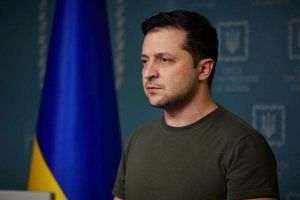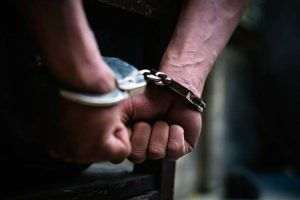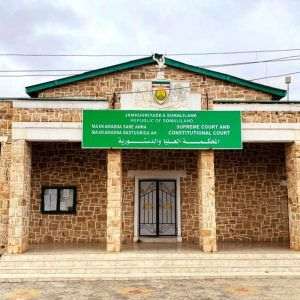The NATO summit, an event taking place these days in Washington and marking the 75th anniversary of the founding of the Alliance, will not give Ukraine an answer regarding its request to join that organization, but it would strengthen the military assistance given to the authorities in Kiev in their fight against the aggression launched by the Russian Federation almost two and a half years ago, support some of the military officials attending the summit, according to information provided by CNN, Voice of America, NBC, The Guardian, Reuters and BFM TV.
Regarding the accession of Ukraine, on the eve of the summit, the diplomats stated for the quoted sources that there is no consensus regarding the issuance by NATO of an invitation to Ukraine for the accession to that organization.
"Some allies are reluctant in this direction, but it is possible that the final statement will state that Ukraine's path to membership is irreversible and that there is no way back," said a European official quoted by the British publication The Guardian. However, another official from the US Presidential Administration stated that the text of the final statement is still under negotiation, but "will include very strong signals of allied support for Ukraine on its path to Euro-Atlantic integration and will also emphasize , the need for the Kiev authorities to carry out important democratic, economic and security reforms".
"Inevitably, there will be a gap between Ukraine's aspirations for NATO and what NATO can actually deliver," Ian Lesser, a Brussels-based expert for the US think tank German Marshall Fund, told the sources, while a NATO diplomat said that in the end, Volodymyr Zelensky "will have no choice but to accept what is offered to him, regardless of the offer on the table."
Regarding the final declaration of the summit, according to the cited sources, it seems that it will reflect the process of strengthening NATO's deterrence and defense posture, highlighting the importance of ensuring the enforceability of regional plans, progress in fulfilling the commitment to allocate 2% of GDP to defense , the strengthening of the defense industry, the substantial support package for Ukraine, the reflection of the Russian threat and NATO's approach, the challenges generated by China, the progress in strengthening resilience and the response to emerging technologies, the deepening of partnership relations, NATO's focus on regions of strategic interest, with the nomination express of the Black Sea region.
Regarding the Black Sea area, President Klaus Iohannis will reiterate the important position of our country on the Eastern Flank of NATO and will request, according to a press release issued by the Presidential Administration, the continuation of strengthening the defense and deterrence position in this region, in order to respond to the challenges the current security environment, as well as strengthening the support given by the Alliance to the Republic of Moldova and Ukraine.
• Increased military assistance to Ukraine
The summit, whose first meeting of the leaders of the 32 allied states will take place this afternoon, will discuss the finalization of the plan for the coordinated provision of military assistance to Ukraine, assistance that will be expanded, with new commitments to deliver the necessary ammunition, as well as new anti-aircraft defense equipment (the cited sources state that after the summit Ukraine will receive four more Patriot systems) and other types of weapons necessary for defense. Regarding the four Patriot systems that would be delivered to Ukraine, The Guardian notes that President Volodymyr Zelensky has asked NATO to send seven such systems. Military experts quoted by British journalists say that in addition to the Patriot systems provided to Ukraine by the USA, Germany, Romania and the Netherlands, Spain, Greece and Poland could also send such systems, which have not yet made any decision in this regard.
The new military aid package to be decided at the summit for Ukraine would include a joint commitment by NATO members to spend at least 40 billion euros ($43 billion) in 2025 on military equipment and related assistance to the authorities from Kiev.
A European official stated for the quoted source that it is not excluded that the NATO leaders establish a multi-year commitment, but noted that it is difficult to reach an agreement in this sense, in view of the opposition of the Hungarian Prime Minister Viktor Orban, the Slovak Robert Fico and of the shadow looming in Washington of a possible American presidency held by Donald Trump from the beginning of next year. However, the same official stated for The Guardian, that he does not rule out the possibility of concluding an agreement for a single year, which would be renewed every annual NATO summit. However, the former Deputy Secretary General of NATO, Camille Grand, warned, according to the quoted source: "The big orange elephant in the room of the NATO summit is that everything that will be decided in connection with Ukraine will carry a big question mark. Will the decisions be maintained if Donald Trump is elected president of the USA in the fall?".
Also during the summit, representatives of the 32 allied states would decide to establish a new military command in the German city of Wiesbaden, which will coordinate military aid and training for Ukraine. The new military command will replace the US-led Contact Group for the Defense of Ukraine, a fact that would, in fact, shift the task of providing support to Ukraine from the Pentagon to NATO, or better said to member states in Europe. That decision, however, is seen as a way to continue supporting Ukraine, even if Donald Trump were to win the US presidential election. By placing aid coordination under the NATO umbrella, the alliance's military personnel have more autonomy to do their jobs without direct political involvement. But this would have limited effect because the US is NATO's dominant power and provides most of the weaponry needed to defend Ukraine. Therefore, if Washington wanted to reduce Western aid to Kiev, it could do so.
• The Pacific area - an area with many challenges for NATO
According to the Reuters agency, during the meeting that NATO leaders will have tomorrow, South Korean President Yoon Suk Yeon would present new data about the threat that North Korea represents to Europe following the strengthening of military ties of the Pyongyang regime with the one from the Kremlin.
In addition, Australia, Japan and New Zealand are expected to join South Korea in its effort to draw the attention of the Russian Federation regarding the relations it maintains with North Korea, especially regarding the shipments of ballistic missiles and other equipment of artillery.
Regarding that area, the four states will also draw attention to the new policy pursued by the regime in Beijing. According to information provided by CNN, China and Belarus are conducting joint military exercises these days that are taking place a few kilometers from the border with Poland, a member state of NATO and the European Union, and almost 75 kilometers from the border with Ukraine. The joint "Attacking Falcon" anti-terrorist training exercise in Belarus would allow military personnel from both countries to act together as a single army at certain stages, Major General Vadim Denisenko of the Belarusian army said in a Telegram post.
The Belarusian Defense Ministry said Chinese military troops had arrived last weekend and released several photos showing Chinese troops unloading equipment from a military cargo plane for the exercises, which will last until July 19, CNN reports. China's Ministry of Defense said the drills would include "hostage rescue operations and counter-terrorism missions."
This security collaboration comes just days after Belarus joined the Shanghai Cooperation Organization (SCO) backed by Beijing and Moscow. Established in 2001 by China, Russia, Kazakhstan, Kyrgyzstan, Tajikistan and Uzbekistan to combat terrorism and promote border security, the SCO has grown in recent years as Beijing and Moscow lead a transformation of the bloc from a regional security club , with emphasis on the central center. Asia to a geopolitical counterbalance of Western institutions led by the United States and its allies.
• NATO, viewed as a global threat by decision makers and influencers in Moscow
The NATO summit these days is not viewed with good eyes by Moscow. In an article written for the Russian daily Izvestia, political scientist Artem Kuznetsov, director of the Center for Educational Programs of the Institute of World War Economy and Strategy in Moscow, claims: "Today, NATO is not only a military-political bloc that expands its influence military in the countries of North America and Europe, but also a global threat, including the regions of Central and South-East Asia, Africa and Latin America. In recent years, the North Atlantic Alliance has doubled in size to 32 member countries, moving as close as possible to our western borders. Since 2014, the total military spending of all NATO member countries has increased 1.5 times and is already about 1.5 trillion dollars. Pursuing its main goal - the possession of Russia, the North Atlantic Alliance is actively supplying weapons to the criminal regime in Kiev for the further escalation of the Ukrainian conflict. And the appointment of former Dutch Prime Minister Mark Rutte as NATO Secretary General, in my opinion, will not change the situation in the future between Russia and NATO, as the Netherlands is considered one of the most active providers of military assistance to Ukraine. At the same time, we note that from 2022 onwards, the United States has provided Ukraine with support totaling more than $175 billion. Moreover, the member countries of the Alliance are now discussing the possible conduct of nuclear tests and the transfer of F-16 fighter aircraft to the Armed Forces of Ukraine. In this context, we can say that the probability of starting a constructive dialogue between Russia and NATO in the near future is completely excluded".
The Russian political scientist believes that the trend of increasing defense spending by NATO member countries will continue in the coming decades and that the Alliance will diversify its military exercises, stimulate the development of companies in the defense industry and the creation of new military equipment.
Artem Kuznetsov concludes: "The military bloc will not stop aggravating the geopolitical situation in different regions of the world - this is true both for the Middle East and the Asia-Pacific region. In this regard, we should carefully analyze the operational situation in the near and far abroad, effectively use the available resources not only to increase the production volumes of the domestic military-industrial complex, but also to develop advanced weapons that have no counterpart in other military forces in the world".



















































